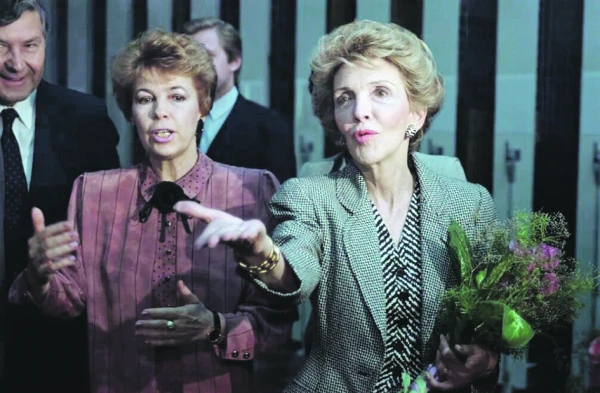
How the first lady of the USSR shaped the destinies of the world.
40 years ago, in November 1985, the first meeting between U.S. President Reagan and the newly ascended Gorbachev took place in Geneva. Opening a new phase in Soviet-American relations, this summit spurred a process that contributed to the collapse of the USSR, giving rise to the proverb: "Started with health – ended with mourning." Journalist and writer Alexander Palladin recounted:
"Gorbachev first generated such euphoria that even a perceptive person like Nikolai Sergeyevich Leonov, deputy head of foreign intelligence, upon arriving in Washington in the summer of '85 for a meeting with the leadership of our embassy and central newspaper correspondents, spoke of the new national leader with genuine enthusiasm:
– Everything he grasps immediately, thinks outside the box, realizes the need for changes in both domestic and foreign policy.
Before the Geneva summit, four masters of our journalism arrived in the U.S. capital (see the article "With an Innocent Smile," "LG," No. 44, 2025). I asked one of them, Heinrich Borovik:
– They say Mikhail Sergeyevich cannot stand flatterers?
Borovik replied with a smirk, leaving me astonished:
– When did careerists and sycophants have the chance? He just became general secretary...
– And what about Raissa Maximovna?
Years later, Valery Ivanovich Boldin, who worked as Gorbachev's assistant for over 10 years, mentioned the same in his book "The Collapse of the Pedestal." I paraphrase: "Many used the general secretary's wife to solve their selfish issues. In Mikhail Sergeyevich's words, Raissa Maximovna led 'our domestic party cell' and ensured that the member of the domestic cell Gorbachev implemented her agenda at the level of the entire CPSU."
– When we argued about something, she would say: 'You be quiet. You only have a silver medal!' – Gorbachev himself recalled.
On the eve of the meeting with Reagan in Washington (December 1987), Mikhail Sergeyevich gave an interview to Tom Brokaw. The ABC correspondent was curious about what Gorbachev discussed with his wife in a domestic setting.
– During evening walks, – the Kremlin host opened his heart wide, – I share with Raissa Maximovna everything that happened during the day...
– You discuss everything with your wife without holding back? – Brokaw could not believe his ears.
– Of course! – Gorbachev confirmed.
Reagan relied on his wife in everything. She maintained strict control over his daily schedule, personally regulating "access to the body" of the head of the White House. However, few knew about Nancy Reagan's excessive influence on the president until they slipped up.
Every Friday at around three in the afternoon, the presidential couple would head to their country residence in Camp David. Before boarding the helicopter on the southern lawn of the White House, the spouses posed for photo and television correspondents, while Reagan answered reporters' questions. He did this only out of tradition. An elderly man – he became president in his eighties – poorly educated (only in 1982, during an official visit to Latin America, did he learn that it consists of different countries), he rehearsed all his public speeches meticulously, but here he had to improvise, risking making a blunder. In this regard, the first lady took on the role of a prompter. As soon as her husband stumbled, she, standing nearby, whispered hints.
For a time, this worked for them until it hit the screens. "Who is she to dictate public statements to the head of state? – the guardians of American law were outraged. – No one voted for her in the elections." "The Republican president sings to his wife's tune," mocked the opposition Democratic Party.
In the White House, however, they quickly figured out how to rein in the journalists. The following Friday, as soon as the Reagans appeared again on the southern lawn, the pilot of their helicopter cranked up the turbines to the max, and no matter how hard the reporters shouted: "Mr. President!.. Mr. President!..", they could not outshout the helicopter. Even the most unruly and loudest among them, the precursor to Sergey Dorenko – ABC correspondent Sam Donaldson – was humiliated. The former movie actor president feigned ignorance, as if he did not understand what they were shouting, and was gone.
The atmosphere was relaxed, but only on the surface
…On November 19, 1985, negotiations between the leaders of the USSR and the USA began in one part of Geneva, while their wives met in another – two, as described by the American radio station PRX, alpha females.
The first day of the summit ended with Gorbachev privately calling Reagan a dinosaur, while Reagan labeled Mikhail Sergeyevich a hard-headed Bolshevik. Nevertheless, two days later they signed a joint statement that brought a sigh of relief to all humanity: "In a nuclear war, there can be no winners, and it must never be unleashed."
The relationship between the two first ladies, however, unfolded according to the proverb: "The scythe found the stone." On November 19, Raissa Maximovna, arriving 15 minutes late at Nancy Reagan's residence, "immediately began to speak, and she spoke without stopping, so that I could barely insert a word" (I quote the wife of the American president).
Raissa Maximovna started with assertions about the inevitable victory of communism, then discussed Soviet art and Marxism-Leninism, and concluded with criticism of the political system of the USA. Nancy Reagan was taken aback: "I had assumed we would discuss familiar issues like life in the public eye, but as soon as I opened my mouth, Raissa interrupted me – and again went on with her own. The spouse of Reagan was struck by the haughty demeanor of the wife of the de facto head of the state of workers and peasants: "She behaved like the Queen of Hearts from 'Alice in Wonderland.'
Eleven months later, Gorbachev and Reagan met again – in Reykjavik (see the article "Fate has preserved our Motherland," "LG," No. 42, 2023). Seeking to emphasize the strictly business nature of the summit, the U.S. president arrived in the capital of Iceland without his wife, while Mikhail Sergeyevich, citing a lack of communication with Raissa Maximovna, brought her along with an innumerable entourage and security. Nancy Reagan "was furious" and since then referred to her rival behind her back as "that woman," without naming her.
The boiling point of their conflict was reached in Washington in December 1987, right in front of everyone (CNN was broadcasting live). Inviting Gorbachev to the White House, its hostess gave the guest a tour. In one of the halls, Raissa Maximovna spotted a canvas depicting a battle scene and asked Nancy Reagan for an explanation. She waved it off, saying, who knows what is painted there. Then Raissa Maximovna, turning her back to her and facing the cameras, demonstrated that she had not studied the Talmud in vain, compiled for her by a cohort of aides:
– This is a painting by the artist so-and-so. It is dedicated to a historical battle that took place then and there during the War of Independence of the USA...
To top it all off, when journalists asked Gorbachev to share his impressions of the White House, he said that living in a museum-like place would hardly occur to normal people. The translators had to summon all their skill to give her phrase a palatable form.
Nancy Reagan's patience snapped in May of the following year during the return visit of the U.S. president to the USSR. Inviting her to the Tretyakov Gallery, Raissa Maximovna again tried to monopolize the attention of the journalists, but the first American lady, losing her temper, shoved the reporters aside, nearly pushed Gorbachev away, and cried out in a near-hysterical tone: "Let me say something too!"
At that moment, I was in the Moscow International Trade Center, which had been handed over to journalists and diplomats, where I witnessed the new conflict of the alpha females in a live CNN telecast. Next to me sat a press department employee from the Ministry of Foreign Affairs, whom I knew from my work in Washington. By evening, he was supposed to prepare an information message about the most important events of the fourth summit of the leaders of the two superpowers.
– Will you mention the new flare-up of the old enmity between these ladies? – I asked him. – It cannot but complicate the relationship between their husbands.
– Are you crazy! – the foreign ministry employee replied. – Besides the enthusiastic panegyrics, Gorbachev does not want to hear anything about his half.

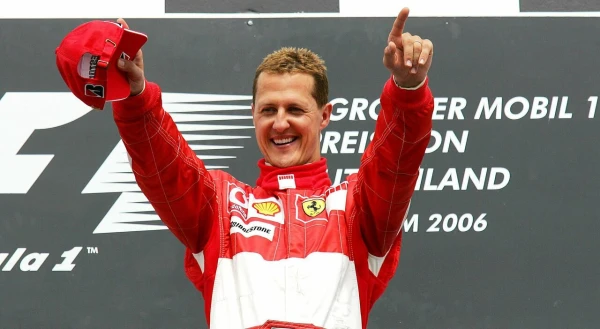


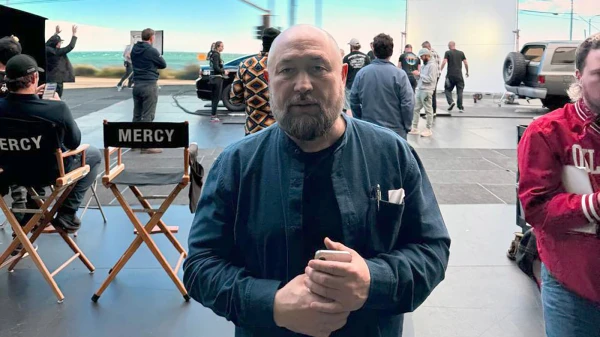

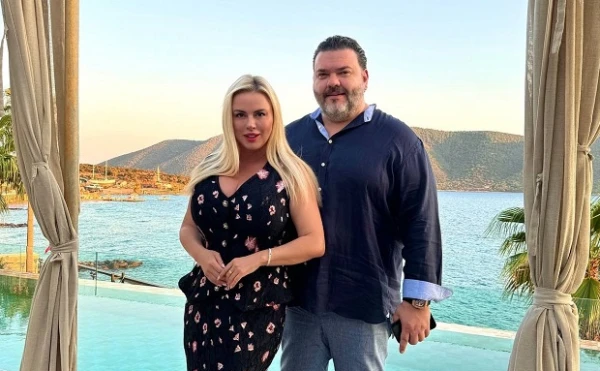
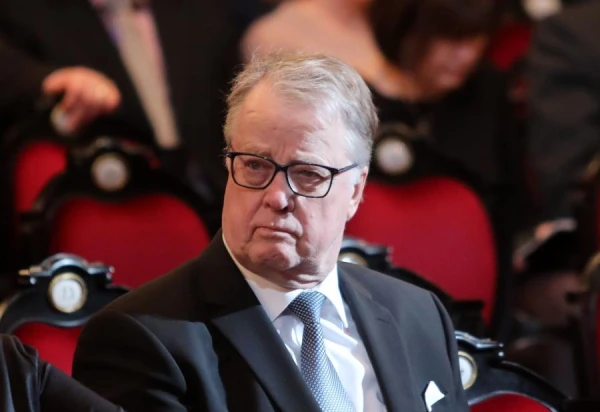
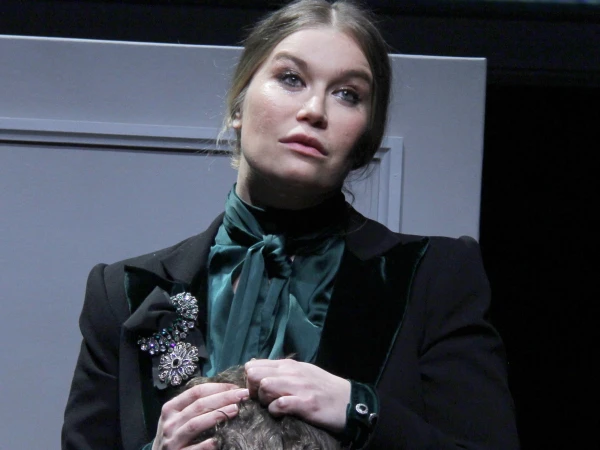





Leave a comment